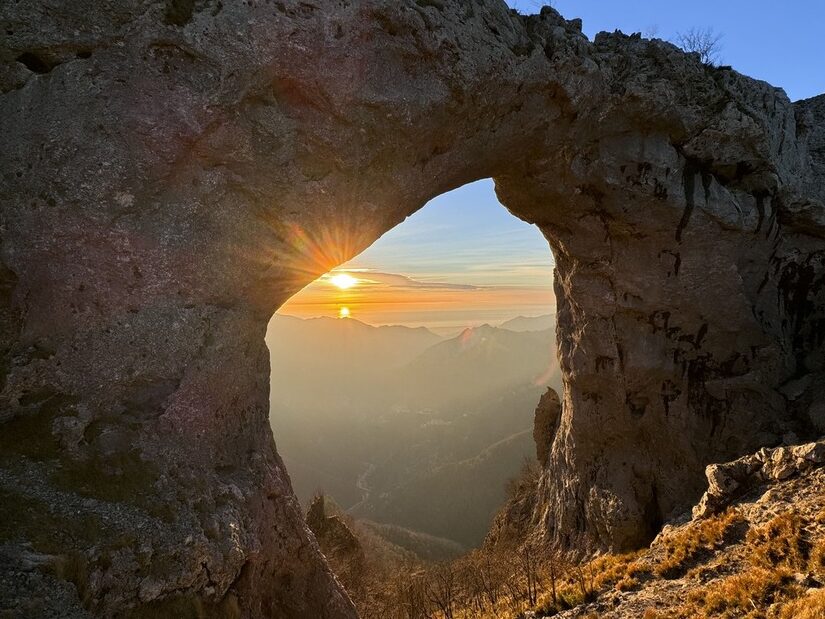By Simone Bandini
The mountains of the Apuan Alps hold places capable of surprising those who cross them: small villages, panoramas that open up suddenly, traditions that are intertwined with daily life. In this scenario, Fabbriche di Vergemoli and Molazzana represent two different but complementary souls of Garfagnana, united today by a common vision of tourism promotion and sustainable development. We talked about it with the Mayors Michele Giannini and Andrea Talani.
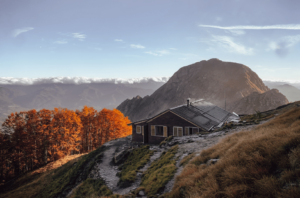
“The tourist does not know the administrative boundaries”, recalls Michele Giannini, mayor of Fabbriche di Vergemoli. “Those who arrive are interested in living an authentic experience, not knowing where one municipality ends and where the other begins.” It is from this awareness that the collaboration between the two territories is born, also sealed by calls for tenders and shared projects”.
Today we are talking about the project espoused by these two territories: ‘The Alps of the Apuan Sea where the sun kisses twice’. An evocative theme that tells two essential traits of this region: on the one hand, the vision of a ‘white sea’, when the clouds remain trapped in the valleys below the peaks; on the other hand, the phenomenon of the double sunset, which can be observed from Monte Forato and other panoramic points, where the sun seems to set twice behind the perforated rock. A rare and fascinating natural event, which combines science and poetry and which alone is worth the trip.
The factories of Vergemoli and Molazzana are custodians of a unique landscape heritage: from the majestic Grotta del Vento, with its underground itineraries, to Monte Forato, an icon of the Apuan Alps, up to the Panie that dominate the horizon, the territory offers eminently naturalistic tourism. Paths maintained by CAI volunteers lead to woods, streams and adventure parks that attract families, sportsmen and hikers.
The history of this land is equally present: Molazzana houses the Museum of the Gothic Line, a living memory of a difficult but fundamental page of the Second World War, while Fabbriche di Vergemoli tells the traditions and crafts of a mountain community that has been able to reinvent itself, without losing its roots.
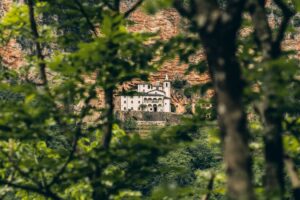
The primary objectives of the Municipality of Molazzana – says Mayor Andrea Talani – concern the enhancement of the territory from a historical-cultural and landscape point of view. The advice I would like to give to those who visit our territory is to ‘get lost’ within the walls of the old villages or to walk along the paths that go through woods and mountain ridges. In this regard, for the upcoming autumn season I remember the chestnuts in the hamlets of Cascio and Sassi, after a brilliant summer season which, respectively in the two villages, saw the great participation for the Crisciolette Festival and for the Black Cat Festival”.
“But how do you imagine the future of Molazzana? What prospects? – we ask again.
“Living in an area like ours has its difficulties, but the “slower” life can be a value to be exploited instead of a limit. To enhance this aspect, it is important to improve the quality of life of citizens, enhancing services such as connectivity and security of the territory,” he explains.
The charm of these villages also lies in the details. In Fornovolasco, a hamlet of Fabbriche di Vergemoli: “Even today an eighteenth-century mill grinds cereals, bringing the visitor back to a slow and artisanal time. On the production front, alongside chestnuts and traditional flavors, fish farming resists and is renewed: the clear waters of the streams are home to trout farms, so much so that the IGP Trota Fario della Garfagnana was born here,” Giannini tells us.
“One of the main objectives of the administrations is to expand and seasonally adjust the tourist offer. An important step was the launch of a large project of a widespread hotel in Fornovolasco, which will make over one hundred beds available, recovering houses and structures in the village. A model of integrated hospitality that enhances the existing and strengthens the community, attracting Italian and foreign visitors,” he continues.
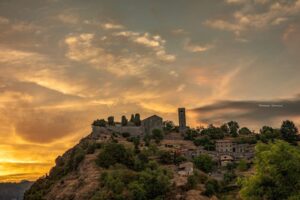
The issue of repopulating mountain areas is central. Giannini knows it well: when he became mayor in 2004, the population of Fabbriche di Vergemoli had dropped to 330 inhabitants, compared to 2,000 a century earlier. To counter depopulation, the administration has launched innovative projects such as ‘1 euro house’, incentives for school transport and widespread reception policies for families.
Covid has shown many the limits of big cities and the value of quality of life in small towns: “Living here means freedom, contact with nature, stress reduction. The community becomes a garrison of solidarity: we get to know each other, we help each other, no one is left alone,” Giannini points out.
At the same time, Fabbriche di Vergemoli and Molazzana have worked to bridge the digital divide, bringing fiber optics and creating co-working spaces. Services that allow those who choose the mountains to work and study remotely, without giving up professional and educational opportunities. A challenge that looks to the future, with the awareness that technology can reduce distances without affecting the identity of the territory.
Tourism, today, is increasingly sensory: it is not enough to simply see a landscape; you have to live it, breathe it, feel it as your own. This is the philosophy that guides the promotion of Fabbriche di Vergemoli e Molazzana: to offer not only places, but experiences. From trekking to canyoning, from popular festivals to the genuine taste of a lunch in a village trattoria.
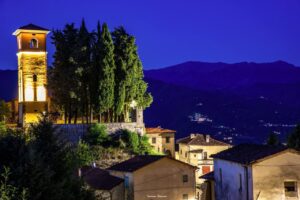
Every moment is an excuse to live authenticity.
And at the center remains the human value: the simple and sincere welcome of those who live in these villages, custodians of a tradition that is renewed: “The real future – concludes Giannini – is to have accessible services, but to live in small communities, where identity, belonging and solidarity are still possible”.
Fabbriche di Vergemoli and Molazzana are not just two names on a map: they are gateways to a world in which nature, history and community life come together in a rare balance. An invitation to slow down, to rediscover the value of time and relationships, to be surprised by a double sunset that illuminates the Apuan Alps.
Info: www.getlostin.it
